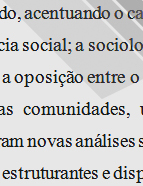

................................
Paulo Merêa (1889-1977), the greatest innovator in the history and philosophy of law, influenced by M. Hauriou, whose Principes de droit public he reviewed, represented the first echo of reaction to positivism (1910), defending a pluralist and critical philosophy (see Lições de História do Direito Português, 1923). He was a regular contributor to the journal Dionysos, which featured intellectuals from the fields of law, philosophy, science and art. His foray into institutional history began with O Poder Real e as Cortes (1923). In his remarkable work Da Minha Gaveta, Os Secretários de Estado do Antigo Regime (1964), he describes the process of royal dispatches in the first and second dynasties with the intervention of the clerk of purity, secretaries and the Council of State, going into detail about the taking of decisions and the design of the entire circuit of document processing and political assessment. He does the same for the Philippine domain with the intervention of the Council of Portugal in Castile, discussing the government of Lisbon. He then analyses the reform of the Secretaries of State (28 July 1736) and the Pombaline period, with emphasis on the Council of State and its composition, the evolution of the Council of Finance, the Royal Treasury and the creation of the Secretary of State for Finance (1790). After addressing the absence of the king in Brazil and the secretaries of the provisional junta of the supreme government, he analyses the new secretariats of state (1821) and the creation of the Ministry of Public Works (1852). He contributed to the History of Portugal, edited by Damião Peres, and to the monumental edition of the History of Portuguese Colonisation in Brazil (1924), whose contributions to various fields of interest are mentioned below.
This work is financed by national funds through FCT - Foundation for Science and Technology, I.P, in the scope of the projects UIDB/04311/2020 and UIDP/04311/2020.
